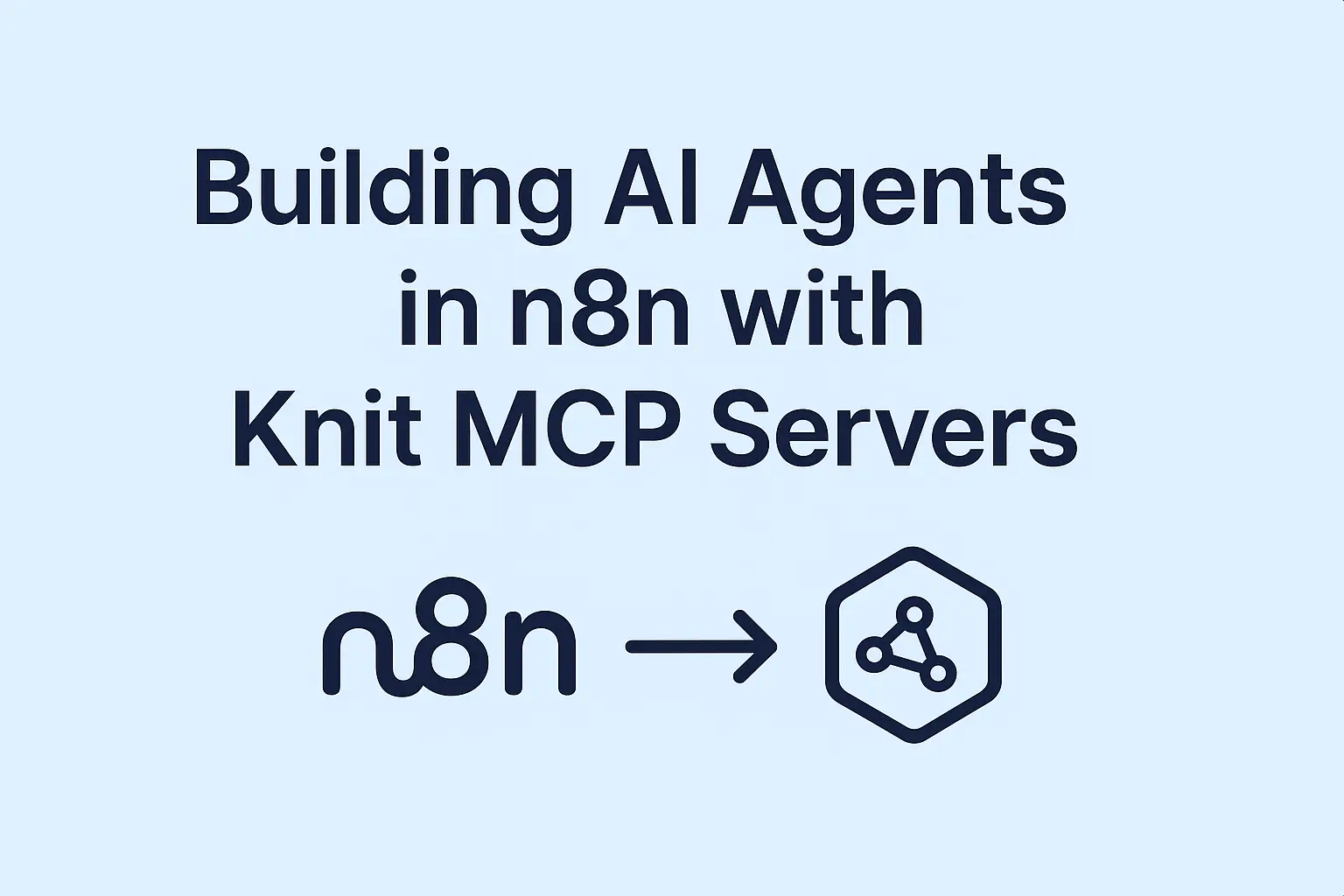Top 5 Kombo.dev Alternatives for Unified API Integration in 2025: The Ultimate Comparison Guide
TL;DR: Best Kombo.dev Alternatives at a Glance
| Platform | Best For | Starting Price | Key Strength |
|---|---|---|---|
| Knit | Complete API coverage with privacy focus | $4,800/year | Real‐time webhooks, zero data storage |
| Merge.dev | Broad connector ecosystem | ~$7,800/year | Standardized data models |
| Apideck | Quick implementation | $3000 / Year | User‐friendly integration setup |
| Paragon | Visual workflow builders | Not disclosed | No‐code integration platform |
| Tray.io | Advanced automation needs | Usage‐based | 1000+ connectors with automation |
Introduction: Why Consider Kombo.dev Alternatives?
Are you searching for powerful Kombo.dev alternatives to enhance your SaaS product’s integration capabilities? As businesses increasingly demand seamless connections between their critical systems, finding the right unified API platform has become essential for product success.
Whether you’re building new integrations, scaling your existing ones, or addressing specific compliance requirements, this comprehensive guide will help you identify the best Kombo.dev alternatives in 2025. We’ll analyze each platform’s strengths, limitations, and ideal use cases to help you make an informed decision for your integration strategy.
Table of Contents
- Understanding Kombo.dev: Capabilities and Limitations
- Top 5 Kombo.dev Alternatives
- FAQ: Common Questions
- Making Your Final Decision
Understanding Kombo.dev: Capabilities and Limitations
Kombo.dev offers a unified API solution primarily focused on HR technology integrations. It helps SaaS companies connect with HRIS, ATS, and payroll platforms through a standardized API interface, saving developers from building individual connectors.
Core Strengths:
- Simplified connectivity to HR tech platforms
- Developer‐friendly documentation
- Standardized data models for HR systems
- Quick implementation for basic HR tech needs
Common Limitations Driving Teams to Seek Alternatives:
- Limited API Categories: Primarily focused on HR tech (HRIS, ATS, payroll)
- Synchronization Approach: Often relies on polling rather than real-time events
- Data Storage Concerns: May store customer data, raising privacy and compliance issues
- Customization Flexibility: Limited ability to extend beyond standard data models
- Scaling Challenges: Pricing structure may become prohibitive at scale
As your integration needs grow beyond basic HR tech connectivity or as you prioritize issues like data privacy, real-time sync, or broader API coverage, exploring alternatives becomes increasingly important.
Top 5 Kombo.dev Alternatives
Knit: The Privacy-First Unified API
Knit stands out as a comprehensive alternative to Kombo.dev with its focus on security, real-time data, and extensive API coverage across multiple business categories.
Key Differentiators:
- Zero Data Storage Architecture: Knit processes but never stores customer data, making compliance with GDPR, CCPA, and other regulations straightforward.
- Event-Driven Webhooks: True real-time data synchronization eliminates polling delays.
- Comprehensive API Library: Goes beyond HR tech to include CRM, e-signature, accounting, ticketing, and more.
- Customizable Data Models: Easily adapt to non-standard fields and custom implementations.
- Integration Health Monitoring: Proactive alerting and resolution capabilities.
Best Use Cases:
- Privacy-focused B2B SaaS companies
- Products requiring real-time data synchronization
- Teams needing integration across multiple categories beyond HR tech
- Organizations with specific compliance requirements
“After switching from Kombo to Knit, we expanded our integration offerings from just HRIS to include CRM and accounting systems—all without adding engineering headcount. The real-time capability and zero-storage model were game-changers for our enterprise clients.” — VP of Product at a growing Compliance SaaS Firm
Starting Price: $2,400/year with transparent, predictable pricing
Merge.dev: Standardized API Integration
Merge.dev offers unified API solutions across multiple categories with a focus on standardized data models and broad connector coverage.
Key Strengths:
- Seven+ integration categories
- Well-documented API with consistent models
- Extensive pre-built connector library
- Focused on standardization across integrations
Limitations:
- Primarily poll-based synchronization
- Higher starting price point (~$7,800/year)
- Limited customization beyond standard data models
- May store customer data as part of their architecture
Ideal For:
- Companies prioritizing breadth of standard connector coverage
- Teams valuing consistency across integrations
- Organizations less concerned about real-time data needs
Apideck: User-Friendly Universal API
Apideck provides a universal API layer with an emphasis on ease of implementation and management through its integration marketplace.
Key Strengths:
- User-friendly integration setup
- Multiple API verticals covered
- Good marketplace approach
- Simplified authentication handling
Limitations:
- Less depth in specialized verticals
- May require ongoing customization for certain connectors
- Real-time capabilities vary by integration
Ideal For:
- Startups and SMBs seeking quick integration capabilities
- Product teams wanting unified authentication
- Use cases with standard data requirements
Paragon: Visual iPaaS Solution
Paragon offers a visual, embedded iPaaS approach with drag-and-drop integration building capabilities.
Key Strengths:
- Visual workflow builder (low/no-code)
- Fully managed authentication
- White-labeled UI options
- Good for front-end integration experiences
Limitations:
- More manual setup for each integration
- Complex integrations may still require custom code
- May not scale as efficiently for multiple customers
Ideal For:
- Teams focused on creating visual integration experiences
- Products requiring white-labeled integration flows
- Use cases where visual workflow building is prioritized
Tray.io: Automation-Focused Integration
Tray.io combines extensive connectors with powerful automation capabilities, positioning it as both an integration and workflow automation platform.
Key Strengths:
- 1000+ pre-built connectors
- Advanced automation and workflow support
- Usage-based pricing model
- Strong custom workflow capabilities
Limitations:
- More complex backend implementation
- Potential learning curve for developers
- May be over-engineered for simple integration needs
Ideal For:
- Organizations with complex automation requirements
- Teams needing both integration and workflow automation
- Use cases requiring highly customized process flows
FAQ: Common Questions About Kombo.dev Alternatives
What is a unified API platform?
A unified API platform provides a standardized interface to connect with multiple third-party applications through a single integration, eliminating the need to build and maintain individual connections to each service.
Why might I need an alternative to Kombo.dev?
You might consider alternatives if you require broader API category coverage beyond HR tech, need real-time data synchronization, have specific privacy requirements, or are looking for more predictable pricing as you scale.
How does implementation time compare across these platforms?
Implementation times vary: Knit and Apideck typically offer the fastest implementation cycles (days to weeks), while Tray.io and more complex Paragon implementations can take weeks to months depending on complexity.
How do these platforms handle custom fields and data models?
Knit offers the most flexibility with fully customizable data models that can be managed through a no-code interface. Merge.dev and Kombo.dev provide some customization but within their standardized models. Tray.io requires more manual mapping through its workflow builder.
What security certifications should I look for?
Look for SOC 2 Type II compliance at minimum. For handling sensitive data, additional certifications like HIPAA compliance, GDPR readiness, and ISO 27001 may be important depending on your industry and customer base.
Can these platforms handle both reading and writing data?
Yes, but with varying capabilities. Knit and Tray.io offer the most comprehensive write capabilities across their supported categories. Merge.dev, Apideck, and Kombo.dev have good read capabilities but more limited write functionality depending on the specific service and endpoint.
Making Your Final Decision
When selecting the best Kombo.dev alternative for your needs, consider these key factors:
- Current and Future Integration Needs: Which API categories will you need now and in the next 18-24 months?
- Real-Time Requirements: How critical is instant data synchronization for your use case?
- Data Privacy Concerns: What are your compliance requirements regarding customer data storage?
- Developer Resources: How much engineering time can you dedicate to implementation and maintenance?
- Budget Predictability: How important is cost predictability as you scale?
For most B2B SaaS companies seeking a comprehensive, future-proof solution with strong privacy features, Knit represents the strongest overall alternative to Kombo.dev in 2025.
However, each platform has its unique strengths:
- Merge.dev excels in standardized data models across multiple categories
- Apideck offers user-friendly implementation for standard use cases
- Paragon provides the best visual integration builder experience
- Tray.io leads in complex workflow automation scenarios
The right choice ultimately depends on your specific business requirements, technical resources, and long-term integration strategy.
Ready to Take the Next Step?
Schedule a personalized demo with Knit to see how their unified API platform can streamline your integration strategy while enhancing security and customer experience.
Last updated: May 2025. All information is subject to change. Please verify current features and pricing directly with each provider.




.webp)




